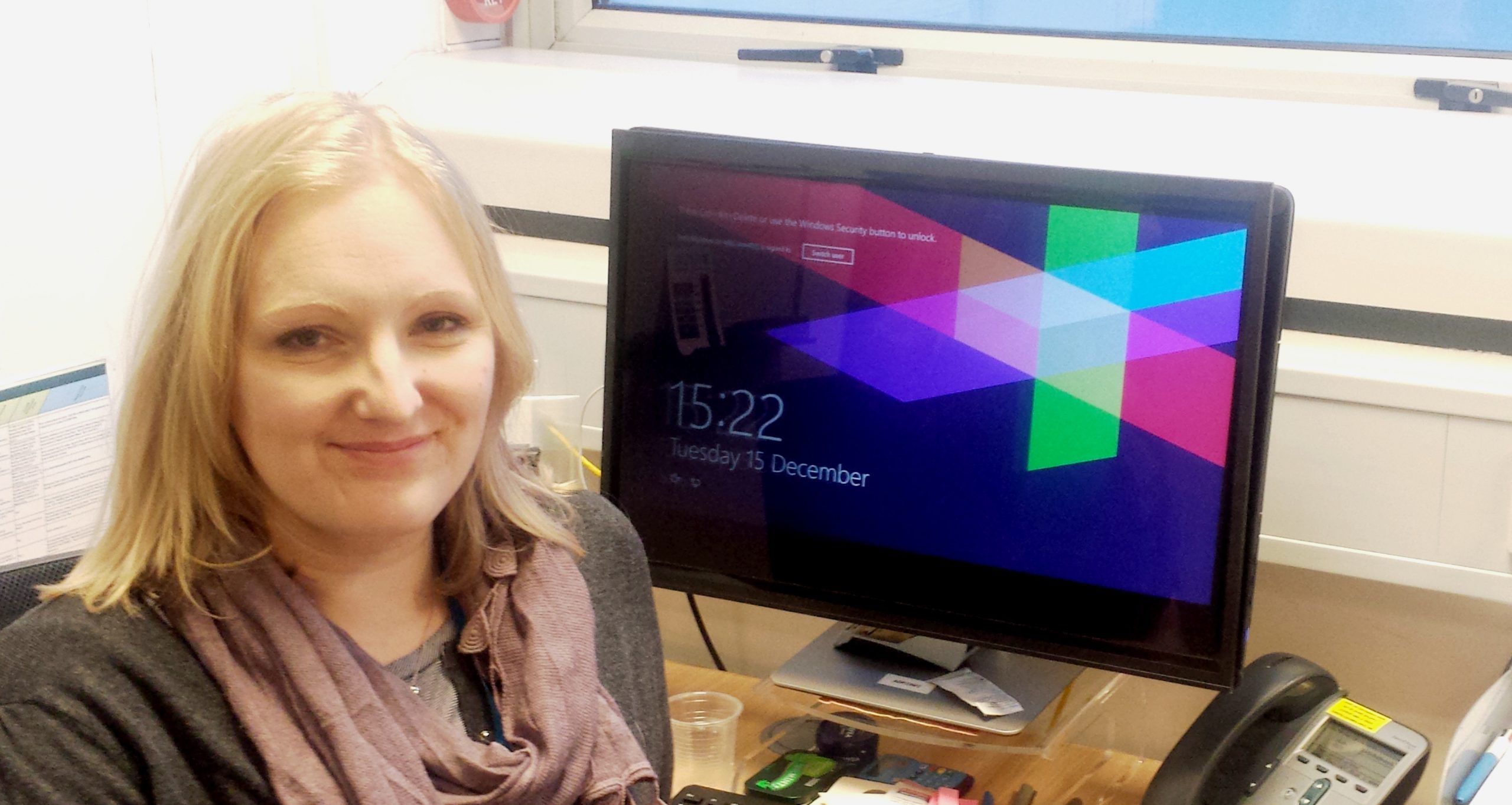In this blog, we interview Beth Muldrew, Clinical Project Manager for the BEST3 trial. Beth successfully managed the project from start-up to conclusion, working across both the Cancer Research UK and King’s College London Cancer Prevention Trials Unit (CPTU) and Professor Rebecca Fitzgerald’s MRC Cancer Unit in Cambridge. Beth was key to ensuring the delivery of the trial, utilising her past experiences in management of health research and health care projects.
You are in a lift (socially distanced) with Chris Witty. Give us your BEST3 elevator pitch…
We know oesophageal cancer is on the rise and it has a dismal prognosis for patients. Rebecca and the team have developed Cytosponge as a simple, easy-to-deliver test which could potentially allow people at risk to have a short visit with their practice nurse to check for the pre-cancerous condition, Barrett’s oesophagus. We know from our team’s earlier research that the test is accurate, safe and acceptable to patients. BEST3, funded by CRUK, set out to understand if offering Cytosponge was better at diagnosing Barrett’s than current primary care practice.
Our results showed that Cytosponge is 10 times more effective than the current way of diagnosing Barrett’s and can also find early cancers. These new diagnoses following Cytosponge allowed our trial participants to begin surveillance sooner, and in some cases, to actually have life-saving treatment for an early cancer diagnosis.
BEST3 involved 13,000 people from 109 different GP surgeries across England. What advice would you give to anyone setting up a trial of this size in the future?
Primary care is handling many priorities to meet the health care needs of our communities – anyone wanting to deliver at this scale needs to be cognisant of this workload and the research management infrastructure in place where they want to carry out the research. This challenging environment also means that researchers must work hard to streamline and simplify research methodology and study requirements wherever possible to avoid unnecessary burden. This includes a good understanding of which clinical systems hold the data that you are interested in collecting – understanding the information systems, data completeness, ease of data retrieval etc.
Research is a highly collaborative enterprise and no one actor can deliver a project. We have been fortunate to have the full range of engaged clinicians, academics and research management colleagues to deliver this project under the exceptional leadership of our Chief Investigator. Therefore, with this array of stakeholders, communications across the many organisations involved need constant attention.
What was the role of the local clinical research networks (LCRNs) in BEST3?
CRN involvement was pivotal to delivering BEST3. We are very lucky to have this kind of programmatic support through the NIHR Clinical research networks in place in England. For BEST3, they provided the full range of support – advising on design and operational issues, finding research sites, co-financing the study (as is customary for NIHR studies) and providing hands-on support to deliver the test, recruit patients and collect data.
BEST3 would not have been a success without the amazing CRN research nurses that we had onboard across England. This was highly translational research with teams of newly-trained nurses (trained by our clinical coordinator Irene Debiram-Beecham) delivering the research intervention as a novel clinical procedure.
In summary, CRN support in Primary care was essential and we are forever indebted to the teams in East Anglia, the North East, Yorkshire, Hampshire, Dorset, London, Oxfordshire, Devon and East Midlands for their commitment to the study.
What was it like working with CPTU?
CPTU has unique expertise in cancer prevention and screening research approaches. Research managers have a wide array of pre-occupations including design and methodology, patient experience, data quality and integrity, regulatory compliance, logistics and delivering to time and target.
Therefore it’s a constant juggling act and by working through a trials unit, our CIs ensure high standards of research quality and integrity, strong oversight of project deliverables, continuous learning and improvement in research design and management. Ultimately this allows innovations in disease prevention to have the same rigorous evidence base as other types of research.
What did you do before the BEST3 trial?
I have worked in humanitarian and health research projects in the UK and overseas with a specialism in health systems management. I’m passionate about innovation that has a strong evidence base and that results in tangible and sustainable health gains for communities. This is particularly when it comes to preventing ill-health as opposed to treating it and allowing people to avoid experiencing debilitating disease wherever possible.
Like many people, I have been personally affected by the consequences of cancer being caught too late. BEST3 has allowed me to combine all these interests. It has been a career highlight – working with an exemplary group of colleagues on a project that is expected to have a meaningful impact on health care and patient lives.
Further Reading:
Barrett’s ESophagus Trial 3 (BEST3)
A ‘sponge on a string’ test to detect oesophageal cancer earlier
A trial using the Cytosponge test in GP surgeries for people with heartburn symptoms (BEST3)
BBC Look East coverage of BEST3 trial results
The views expressed are those of the author. Posting of the blog does not signify that the Cancer Prevention Group endorse those views or opinions.

